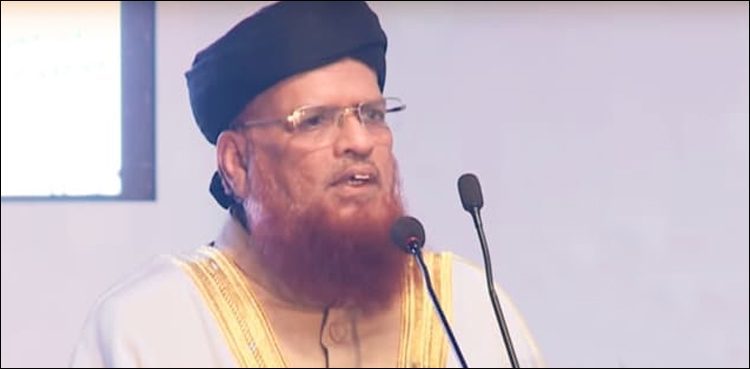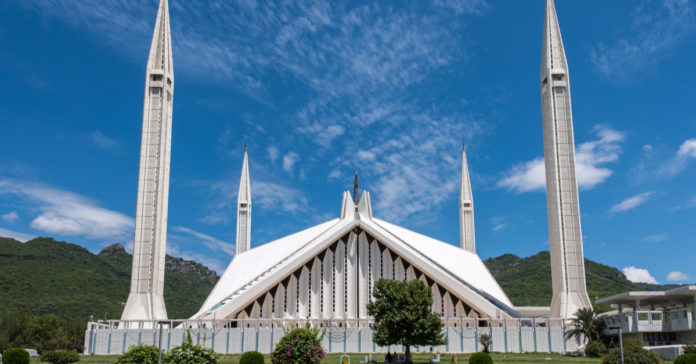All eyes will be on jumu’ah prayers tomorrow in Pakistan after influential imams pledged to open mosques despite the country’s coronavirus lockdown being extended by another few weeks.
The Minister for Religious Affairs, Pir Noorul Haq Qadri, has called on Deobandi leader Mufti Taqi Usmani not to flout the advisory for coronavirus precautions regarding gatherings in mosques. Sources in the ministry said Mr Qadri conveyed a similar message to Karachi-based Ruet-i-Hilal Committee Chairman Mufti Muneebur Rehman.
Mr Rehman, Mr Usmani and a large number of clerics from the Barelvi, Deobandi and Ahle Hadith schools of thought have threatened to ignore government directives regarding measures to prevent the spread of the coronavirus.
Rehman said Taraweeh prayers would be held in mosques during Ramadan too. He told reporters that he wanted to give the government a message that mosques should not be closed.
He also criticised the police for using force against prayers leaders in the country. “The prayer leader’s job is to lead prayers, not to stop them,” Mufti Muneebur Rehman added.

Police have registered cases against several prayer leaders in the country for violating the lockdown, but Mufti Usmani demanded the government release prayer leaders and withdraw cases against them.
However, he said that people should take precautionary measures to protect themselves from coronavirus. Prayer leaders should stop delivering speeches and limit the time of prayers, Mufti Usmani urged.
Subscribe to our newsletter and stay updated on the latest news and updates from around the Muslim world!
Hafiz Mohammad Tahir Ashrafi, the chairman of the Pakistan Ulema Council, said that clerics are opposed to locking mosques but are ready to abide by government directives restricting the number of people in prayer congregations.
“But if Mufti Muneeb has announced to flout the restrictions, then the government should [hold him accountable] – his designation is equivalent to a federal minister, he is part of the government,” Mr Ashrafi said.
He added: “Ulema do not want any clash with the authorities, but ulema should not be held accountable if a large number of people enter mosques for prayers, this is the responsibility of the state and it should be done by government functionaries.”
Meanwhile, the Jamiat Ulema-i-Islam-Fazl (JUI-F) has claimed that the restrictions on mosques is a conspiracy against Muslims.
On the other hand, clerics and scholars from the Shia community have not expressed any intentions to open mosques, and nearly all of their masaajid are locked with no more than five people praying inside.
Minister for Science and Technology Fawad Chaudhry criticised Mr Rehman on Twitter: “Attention has been drawn towards the Ministry of Religious Affairs – if the head of one of their committees is behaving like this, what can we expect from the rest?”
The government prohibited mass prayers in the last week of March after a spike in coronavirus cases across the country. The virus has so far claimed over 100 lives and the number of known cases has reached over 6,000 in the country.
The law enforcement agencies, however, have had to face resistance while implementing the government’s orders.






















